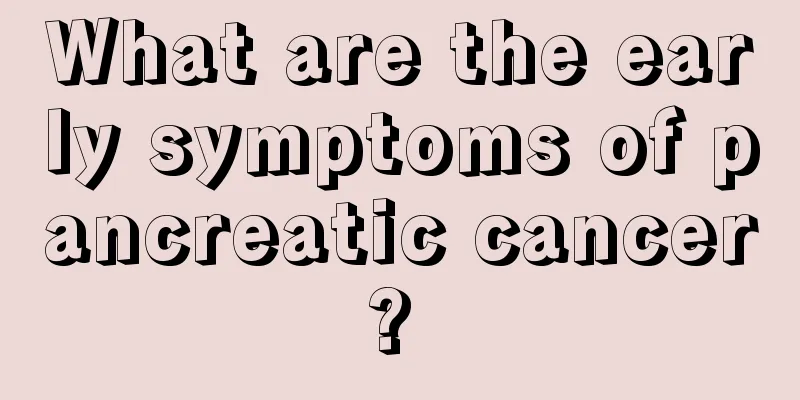Henoch-Schonlein purpura nephritis

|
Henoch-Schonlein purpura nephritis is a common type of nephritis. This disease can cause irreversible damage to renal function and also cause skin lesions. It must be treated as soon as possible. Henoch-Schonlein purpura nephritis has many complications, and in severe cases it can cause acute symptoms such as upper gastrointestinal bleeding. It is caused by a series of allergens and is an immune system disease. The main harm is damage to the kidneys. Patients with Henoch-Schonlein purpura nephritis will have symptoms of skin rash in the early stages, accompanied by itching. In the later stages, it will cause changes in the entire kidney including the urinary system, such as hematuria, edema, etc. The prognosis is not optimistic. Let us learn about this disease together. There is no name for this disease in traditional Chinese medicine. According to its clinical manifestations, we can classify the symptoms in the purpura stage (hemorrhagic rash) into the categories of "macules", "ecchymosis", "mucorrhea", "purpura" or "grape epidemic" in traditional Chinese medicine; when there is joint pain, it is classified into the category of "arthritis" in traditional Chinese medicine; when abdominal pain is the main symptom, it is classified into the category of "abdominal pain" in traditional Chinese medicine; when there are kidney lesions such as hematuria, eyelid and limb edema, it is classified into the category of "hematuria", "hematuria" or "edema" in traditional Chinese medicine; when the lesions are long-term and there are symptoms of deficiency such as organ loss and weak vital energy, it can be classified into the category of "deficiency and fatigue" in traditional Chinese medicine. The main pathogenesis is that allergens (food, drugs, bacteria, viruses, toxins, etc.) cause the formation of immune complexes and their deposition in the kidneys, inducing immune damage and vascular inflammation. A large amount of research data shows that Henoch-Schonlein purpura nephritis is an immune complex disease: circulating immune complexes can be detected in the serum of HSP patients; small blood vessels in the skin, glomeruli, and mesenteric blood vessels show allergic vasculitis lesions, and IgA and C3 granular deposits can be detected in the diseased blood vessels and glomeruli; if an HSP patient undergoes a kidney transplant, the transplanted normal kidney will also develop the same lesions. IgA plays an important role in its pathogenesis. This disease has a familial tendency. In short, the treatment of traditional Chinese medicine often starts with the cause of the disease. Although the cause of the disease is complex, the focus is on its close relationship with dampness, heat and blood stasis. Damp heat accumulates in the lower part of the body, causing poor water flow and damaged blood vessels, resulting in hematuria, oliguria, and even edema. Heat toxins damage the kidneys, causing the kidneys to lose their ability to control their qi and spleen to be damaged, which can lead to the discharge of essence and varying degrees of proteinuria. This disease is often caused by external pathogens, followed by the appearance of spots. It belongs to the category of rash caused by heat and toxins. It is mostly due to the failure of blood circulation and the blood overflowing to the outside, so the method of clearing away heat and detoxifying, removing blood stasis and unblocking collaterals can remove the stagnation in the blood vessels, allow the blood to return to its normal place and promote recovery. Modern pharmacology has also confirmed that promoting blood circulation and removing blood stasis can reduce whole blood viscosity, inhibit thrombosis, enhance renal blood flow, improve microcirculation, regulate immune function, and have anti-allergic and anti-allergic inflammatory effects. Therefore, the method of clearing away heat and dampness, removing blood stasis and promoting blood circulation to treat this disease is consistent with the theoretical understanding of this disease by traditional Chinese medicine, and is also consistent with the current understanding of the pathological changes of purpura nephritis and the pharmacology of prescriptions and medicines. Based on the above viewpoints, we must have confidence in treating Henoch-Schönlein purpura, adhere to long-term treatment, keep a good mood during the treatment, avoid being overly excited, and eat a light diet to prevent the disease from worsening or recurring. Strengthen exercise and improve your physical fitness, so that you can stay away from this disease as soon as possible and restore your health. |
Recommend
Daily exposure to the sun or ultraviolet radiation can easily induce the cause of skin cancer
Among the world's population, skin cancer mai...
What to do if the ear is swollen and painful
Ears are one of our five senses. However, due to ...
Are there any side effects of taking Xiaoer Qizhen Dan
Nowadays, people eat more and more types of food,...
Big belly like being pregnant?
Today's society is an era of competing for lo...
The refrigerator is not cooling
Speaking of home appliances such as refrigerators...
How to treat esophageal cancer in the 80s
Treatment for esophageal cancer patients over 80 ...
Are monk fruit and passion fruit the same?
There are many kinds of fruits that we can buy in...
Can chronic pharyngitis be cured? Which treatment method is better?
Chronic pharyngitis is not a terminal illness, bu...
Effect of Herbal Medicine on Bone Cancer
Bone tumors can be benign or malignant. Malignant...
What cigarette has low tar content?
Cigarettes have gradually become an indispensable...
How should blood moles be treated?
A blood mole is a small red mole that grows on ou...
Nutritional value of carrot orange juice
Various kinds of fruit and vegetable beverages ar...
What's the matter with my eyelids twitching all the time
Many people judge good or bad luck by the conditi...
How to treat gingival atrophy?
Gingival atrophy is a common dental disease, and ...
Why can't I see clearly with one eye after waking up?
Eyes are the windows to the soul. Sometimes in li...









